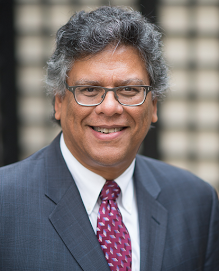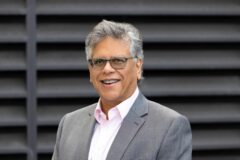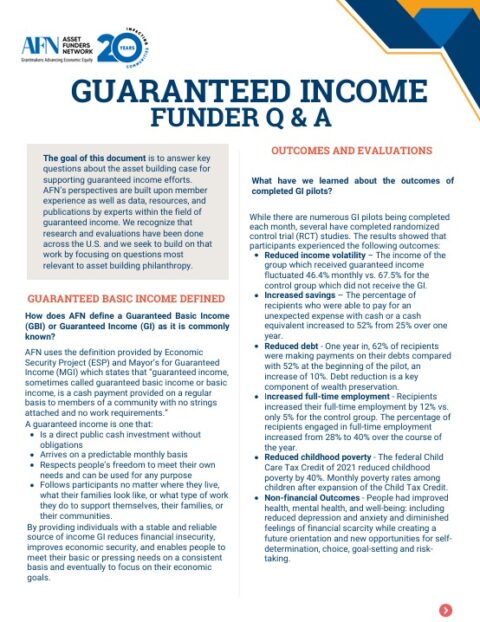 FROM THE PRESIDENT AND CEO
FROM THE PRESIDENT AND CEO
MAY 2021
A year has passed since the killing of George Floyd; the justified outrage and protest across the nation calling for racial justice and equity is still to be addressed. Coupled with the pandemic’s reveal of the undeniable economic legacies of public policy choices that sustain racial and ethnic inequality across the spectrum of essential jobs and a recession primarily impacting women, there is much to reinvent. Reimagining an equitable economy is fundamental to resilience and justice. Doing so without acknowledging the role of discrimination and disadvantage placed before Black, Latinx, Indigenous, Asian and women seeking to achieve economic stability and security from work is doomed to failure.
Asset building, or more accurately wealth building for security and resilience, is achievable, but only if we move to far more equitable economic policies and practices. Public policy on a national and local level matters. Economic practices and narratives embraced by employers and communities matter. Reimagining the connection between productivity, social value of the work performed, essentialness, and pay is fundamental to a future that is equitable.
Embedded in imagining an equitable future include some of the following:
- A balanced tax policy reorienting the current tax burdens to one of fair share that fully supports government initiatives and incent private sector efforts to advance economic growth with actions to make economic security the norm,
- A modern benefit system (health benefits, access to portable and adequate retirement, and paid time off) are not dependent on the employer, but instead are portable and universal,
- Wages tied to productivity and societal value and economic supports that together allow workers to pay the bills, provide for emergency savings, and allow for wealth building for workers in the care economy, essential workers, farm workers and others across the economy,
- Accepting that essential infrastructure is not limited to roads, bridges, and broadband but affirmatively includes public transportation, carbon free energy and transportation, and especially well-funded high quality child care because these are necessary for workers and the economy,
- Acknowledging that our medical debt and student debt policies, that have led to crushing and unproductive debt, were a mistake and a drag on the economy and cancelling the debts in whole or in substantial part,
- Expanding accessible, affordable (without loans) pathways to post-secondary education and credentialing to increase equitable starts to careers and asset building, and
- Fully embracing the leadership by people of color across economic sectors not just as a form of diversity, but as meaningful inclusion and a sharing of power.
Many stakeholders and holders of power will push back; they will argue that it is too many ideas, too expensive, and too disruptive. They are wrong. The point is that the pandemic revealed conclusively that we have huge historic racist and sexist policies informing systems that today perpetuate injustice and crushing wealth gaps. A system that makes financial security elusive for full time workers – whether educated or essential workers – is economically inequitable and unjust. It has to be changed.
Philanthropy has and will continue to make a key difference. We understand not to limit efforts just to the delivery of access to services to communities previously excluded with the funding of training programs, support of economic development, coaching, and expansion of individual opportunity. Without connection to government policy changes, changing narratives, and identifying systemic solutions, the other efforts while necessary will remain insufficient. The desired future requires philanthropic leadership that supports the north star of racial, ethnic and gender equity; relentless advocacy and coalition building; and taking risks to create inclusive and equitable systemic change as primary strategic solutions.
AFN will continue to raise and foster the uncomfortable conversations and to lift up the risk-taking to achieve these goals – it’s embedded in our mission. Our staff and members fully understand and welcome that we are one voice among a growing number of thought leaders across non-profits, research institutions, community organizers, philanthropy and even some public officials.
In that vein, because Heather McCulloch, the founder and first executive director of Closing the Women’s Wealth Gap (CWWG) has been both a truly effective voice and a valuable AFN partner, I wanted to recognize her, before she transitions soon to the Aspen Institute, to celebrate her vision and collaborative spirit at CWWG. She effectively challenged how many understood the issues and coalesced an array of stakeholders to advocate for solutions addressing the roots of the gender wealth gap and the racial wealth gap overlay. As she moves on to her next set of advocacy challenges and opportunities, we at AFN recognize her for her many contributions thus far and wish her continued success.
Engage to make change happen, to build a more equitable and inclusive society. Join AFN to make this a reality for all.


